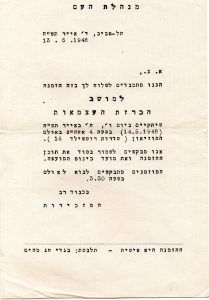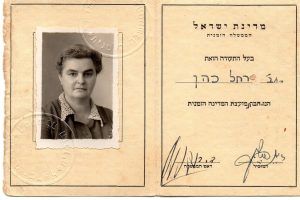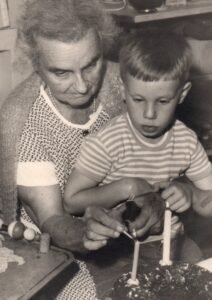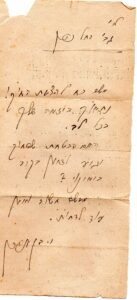Rachel Cohen-Kagan
- 21:46
- 2023
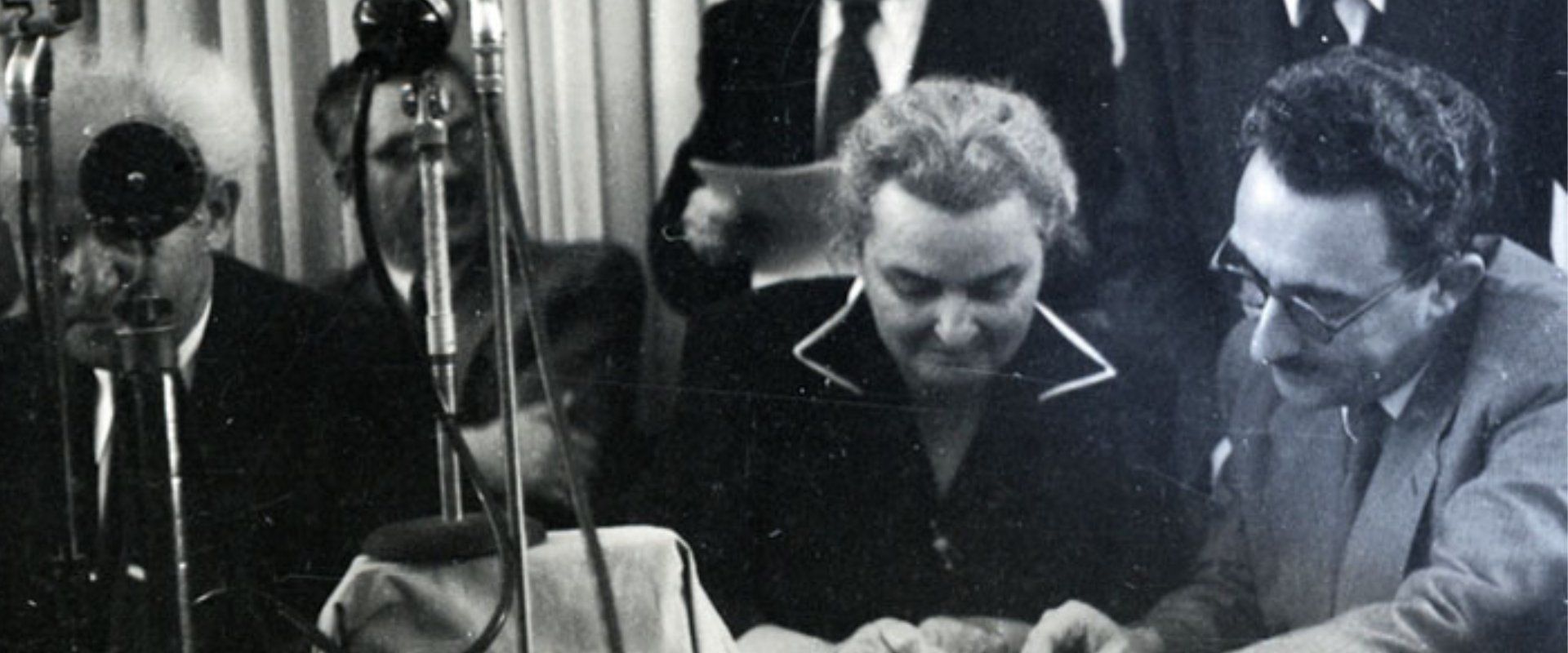
Rachel Cohen-Kagan was born in 1888 into the Zionist Lubarsky family of Odessa. Her father, Ya’akov, was one of the founders of the Hovevei Zion Movement, which meant that – growing up – Rachel hobnobbed with many of Odessa’s leading Zionist figures such as Ehad Ha’Am and Hayim Nahman Bialik.
In November 1919, she boarded The Ruslan, a ship that brought over so many of Israel’s future luminaries that it is sometimes nicknamed the “Israeli Mayflower.” After twenty-one tumultuous days at sea, they docked at the Jaffa port on the third night of Hanukkah.
Once here, Cohen-Kagan became active in Haifa, mainly on matters of social welfare. Following the death of Henrietta Szold, she was appointed to the Va’ad HaLeumi, the Jewish National Council, and put in charge of the social welfare division. Among her most notable accomplishments was the establishment – alongside her famous pediatrician sister-in-law Dr. Helena Kagan – of Tipat Halav, a network of baby wellness clinics across Israel, which managed, within the span of just a few years, to dramatically lower local infant mortality rates.
In 1949 she was elected to the very first Knesset, and promoted the first legislation to secure equal rights for women. But her comprehensive progressive bill was thwarted by the religious factions within the coalition. As a result, she angrily resigned from the Knesset, and was elected chairwoman of WIZO, the Women’s International Zionist Organization.
Cohen-Kagan later on returned to the parliament, and fought openly and fiercely for women’s rights to divorce, for equal service for women in military combat units, and for the strict criminalization of domestic violence, which in the early years of the State only carried a weak mandatory minimum sentence.
She remained active up until her death, in 1982, at the age of 94.
Rachel Cohen-Kagan
The thirty-seven people who signed Megillat Ha’Atzmaut on May 14, 1948, represented many factions of the Jewish population: There were revisionists and Labor Party apparatchiks; capitalists and communists and socialists; kibbutznikim, moshavnikim and city-folk; charedi rabbis and atheists.
Over the course of the past several months, our team has diligently tracked down the closest living relative of each one of these signatories, and interviewed them. We talked about their ancestors and families, about the promise of the Declaration, the places in which we delivered on that promise, the places in which we exceeded our wildest dreams, and also about the places where we fell short.
And it is through these descendants of the men and women who – with the strike of a pen – gave birth to this country of ours, that we wish to learn something about ourselves.
Today we’ll meet Rachel Cohen-Kagan, and her grandson, Oren Kagan. He’ll present one of the many political perspectives we’ll be featuring throughout the series.
Further Reading
In 1961 Eliezer Whartman of the Israel State Archives conducted a series of interviews with 31 of the 37 signatories of the Declaration of Independence. For the full interview with Rachel Cohen-Kagan, see here.
For a recent article about the life and times of Rachel Cohen-Kagan, including photos, WIZO election propaganda and a 1948 Haaretz interview with Cohen-Kagan, see the National Library’s blog.
For a biographical entry on Cohen-Kagan see the Jewish Women’s Archive’s Shalvi/Hyman Encyclopedia of Jewish Women.
For a survey of women’s political movements in Israel, see Leah Simmons Levin, “Setting the Agenda: The Success of the 1977 Israel Women’s Party,” Israel Studies, Vol. 4, no. 2 (Fall 1999): 40-63.
Rachel Cohen-Kagan wrote a short memoir, primarily for her family members. You can see some of its pages here and here, courtesy of her grandson, Oren Kagan.
For amazing videos and photos of Israel’s first elections, in 1949, see the State Archives website.
For an English-language video marking WIZO’s centennial see here.
The greatest authority on Israel’s female members of Knesset is Shavit Ben-Arie. His Hebrew-language book charting the history of women in Israeli politics, is Female Members of Knesset: Leading Women in Israel (2011). For many statistics about women in Israeli politics, see the Knesset’s 2022 report.
Credits
Mitch Ginsburg and Lev Cohen are the senior producers of Signed, Sealed, Delivered? This episode was mixed by Sela Waisblum. Zev Levi scored and sound designed it with music from Blue Dot Sessions. Our music consultants are Tomer Kariv and Yoni Turner, and our dubber is Becca Sykes.
The end song is Toy (lyrics and music – Doron Medalie and Stav Beger), performed by Netta Barzilai.
This series is dedicated to the memory of David Harman, who was a true believer in the values of the Declaration of Independence, in Zionism, in democracy and – most of all – in equality.
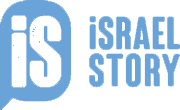
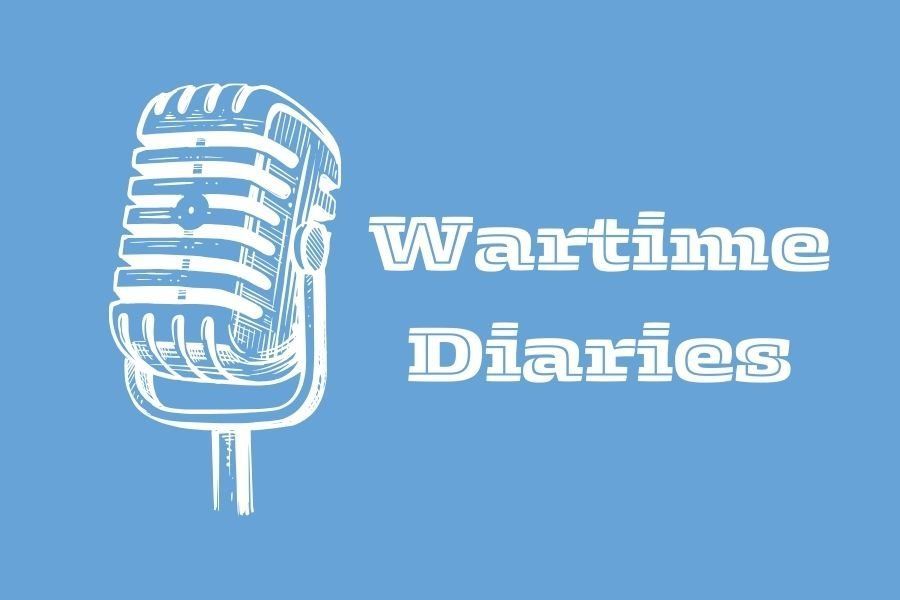 Wartime Diaries
Wartime Diaries
